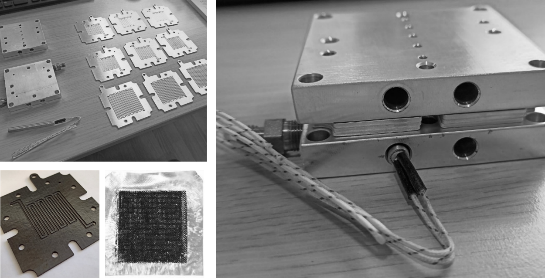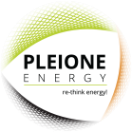THE PROJECT
Technological Background and Research Challenges
One of the main drawbacks of fuel cells that are hindering their widespread commercialization are hydrogen infrastructures. Methanol is a liquid hydrogen carrier, and has the lowest reforming temperature, around 200–300oC compared to other hydrocarbons.
APUs (auxiliary power units) fuel cell systems running on methanol hold a great deal of market potential, as they offer a ready and widely available source of power for mobile and off-grid applications.
Reformed methanol fuel cell (RMFC) is a type of indirect methanol fuel cell, which first converts methanol into hydrogen with a methanol reformer; and then the hydrogen rich gas is led to a hydrogen/air fuel cell to generate electricity.
However, there is a mismatch of the operating temperatures between the fuel cell (typically 160-C) and the reformer (200-300oC), thus complicating the balance of plant. Moreover, commercially available high temperature polymer electrolyte-electrode systems operating at T<180oC, cannot tolerate cycling operation and reformed fuels with methanol concentrations higher than 1.5%.
Voluminous and heavy graphite-based bipolar plates are another component which adds weight and lowers the total efficiency. Following the guidebook of this bilateral cooperation, we will confront significant technological problems in the hydrogen energy area.
The complexity of the balance of plant of a “fuel cell-fuel processor” unit challenges the design and development of compact, efficient, low-cost and user-friendly fuel cell power systems for portable and off-grid applications. The developed technological know-how will offer substantial benefits for green energy not only in involved countries but all around the world.
Thus, additional business opportunities will be created by export activities from each side. Successful implementation of the present joint cooperation of Greece and China partners will attract potential stakeholders and will strengthen the goals of the attached proposal, thus promoting renewable energy solutions.
Concept of fuel cells with internal reforming of methanol.
Taking advantage of the significant achievements of research teams from UPAT, SJTU and PLEIONE, participating in this project, based on the intermediate temperature electrolytes for operation above 200oC, we propose the demonstration of a compact, modular fuel cell stack of 20 W with internal reforming of methanol for portable and off grid applications.
Integration of the reformer into the fuel cell offers room for simplification, increase of efficiency and minimization of system weight and volume.
Specific targets for improvement of the efficiency have been identified and will be confronted in this project. These are the stability of the electrolytes at 200-250oC, under cycling (on-off) conditions, and the development of lightweight and volume, durable and low-cost bipolar plates.

Objectives
- Intermediate temperature molten proton conductor electrolyte membranes, being able to operate at 200-250oC under cycling (on-off) conditions. The electrolyte will be constituted by oxysalt, mesoporous SiO2 (TiO2 or ZrO2) powder and polymer.
- Membrane-Electrode-Assembly (MEA) with molten proton conductor electrolyte membrane.
- Low-cost and lightweight and volume bipolar plates, being stable at elevated temperatures in the strong acidic environment of MEAs. Coated Al plates and carbon fiber composites will be developed.
- Efficient methanol reforming catalysts operating at 200-250oC via nanostructuring of CuZn-based catalysts and introducing atomically dispersed active species.
- Integrated reformed methanol fuel cell. The intermediate temperature fuel cell based on the molten proton conductor electrolyte can be operated in the temperature range of 200-250oC, thus matching the methanol reformer’ operation level, and resulting in a highly efficient power unit.






